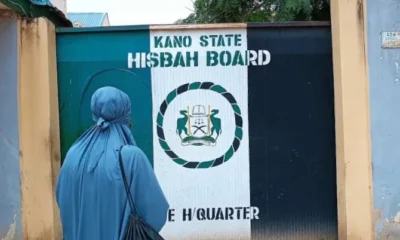Business
FG revises consolidated salary structure for minimum wage implementation
The federal government has approved the upward review of the consolidated public service salary structure (CONPSS).
Ekpo Nta, chair of the National Salaries, Incomes and Wages Commission (NSIWC), announced this at a press briefing in Abuja on Tuesday.
Nta said the review was carried out after the enactment of the Minimum Wage (Amendment) Act 2024 and the memorandum of understanding signed with labour leaders.
“This is consequent to the enactment of the National Minimum Wage (Amendment)Act 2024 and the memorandum of understanding reached by the committee on consequential adjustments in salaries arising from the National Minimum Wage (Amendment) Act, 2024,” he said.
“The MoU was reached between the Federal Government of Nigeria and the Trade Union sides of the Joint National Public Service Negotiating Council on Sept. 20.”
He said workers on the consolidated research and allied institutions salary structure (CONRAISS), consolidated universities academic salary structure (CONUASS) and consolidated tertiary institutions salary structure II (CONTISS II), consolidated polytechnics and colleges of education academic staff salary structure (CONPCASS), consolidated tertiary educational institutions salary structure (CONTEDISS) and consolidated medical salary structure (CONMESS) will also benefit from the review.
Others include the consolidated health salary structure (CONHESS), consolidated para-military salary structure (CONPASS) and consolidated police salary structure (CONPOSS), consolidated intelligence community salary structure (CONICSS) and consolidated armed forces salary structure (CONAFSS).
On July 29, President Bola Tinubu signed the minimum wage bill into law.
The legislation increased the country’s minimum wage from N30,000 to N70,000.
On September 20, the committee on consequential adjustments in salaries for civil servants said the agreement will come into effect from July 29, 2024.





















